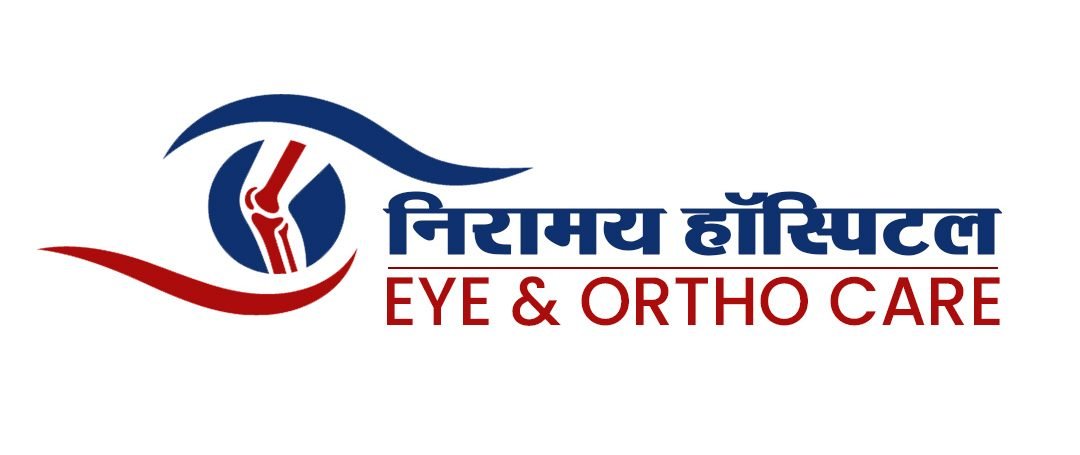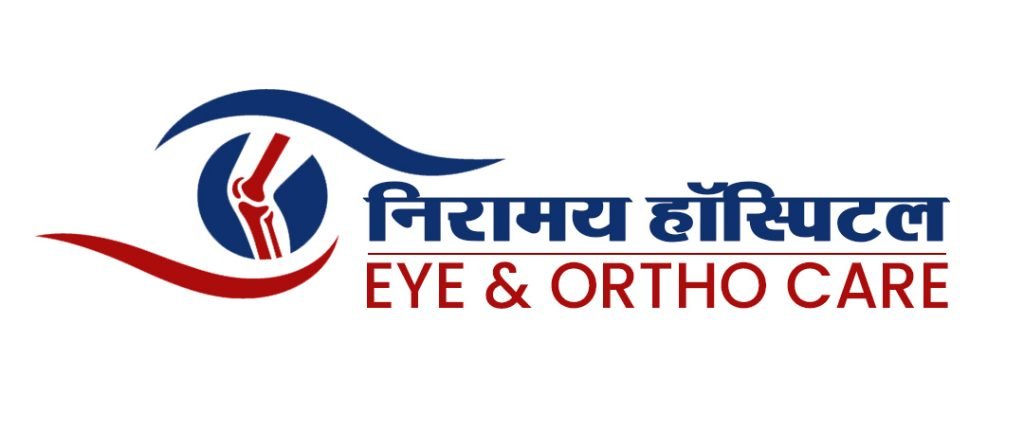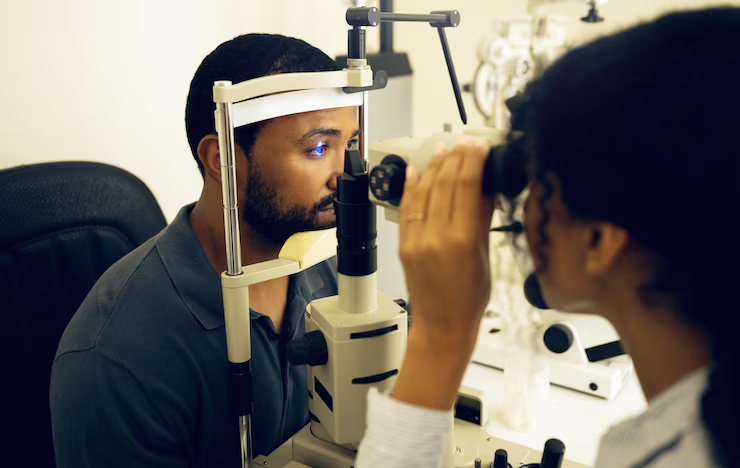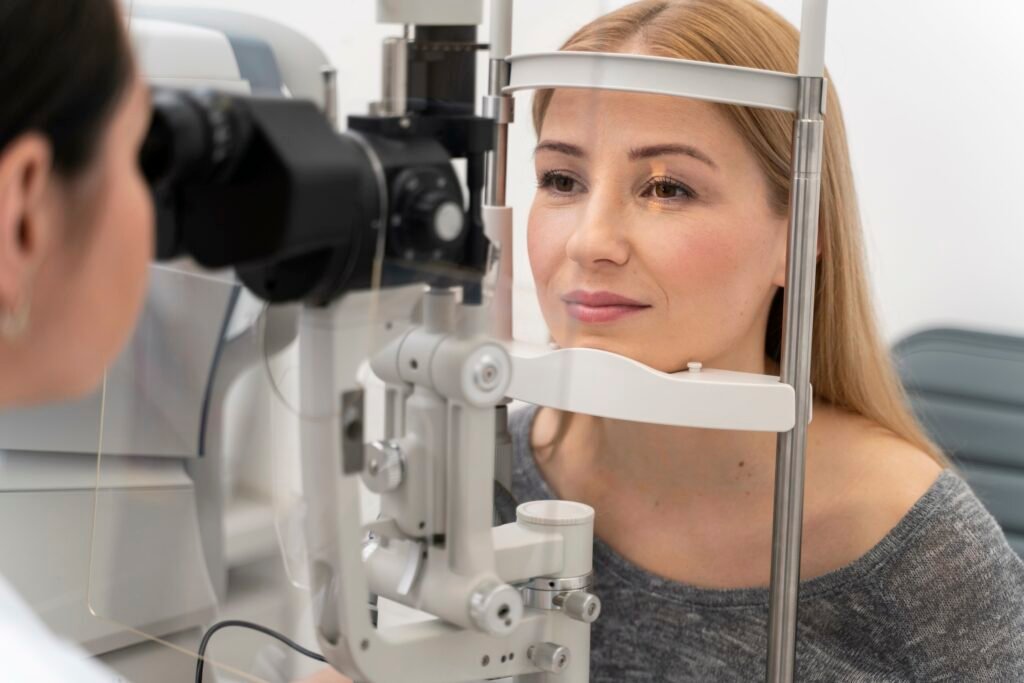Glaucoma is one of the leading causes of irreversible vision loss worldwide. If someone in your family has been diagnosed with glaucoma, it’s important to understand your risk and take preventive steps early. This post provides clear, factual, and easy-to-understand information to help you stay informed.
What Is Glaucoma?
Glaucoma is a group of eye conditions that damage the optic nerve, the part of your eye responsible for transmitting visual information from the eye to the brain. This damage is often caused by increased pressure inside the eye (intraocular pressure or IOP), but it can also occur with normal pressure levels.
Glaucoma usually affects both eyes, though it may start in one. Over time, it can lead to vision loss—especially peripheral (side) vision—and eventually blindness if not treated.
Why Is Family History Important in Glaucoma?
Glaucoma can be hereditary. If your parents, siblings, or grandparents have had glaucoma, you are at a significantly higher risk of developing the condition.
According to studies:
- You are 4 to 9 times more likely to develop glaucoma if a close relative has it.
- Primary open-angle glaucoma, the most common type, tends to run in families.
That’s why knowing your family history can be a critical tool in early detection.
Types of Glaucoma You Should Know
- Primary Open-Angle Glaucoma (POAG)
- Most common type
- Develops slowly and painlessly
- Often goes unnoticed until vision loss occurs
- Angle-Closure Glaucoma
- Less common
- Sudden onset with pain, nausea, and blurred vision
- Requires immediate treatment
- Normal-Tension Glaucoma
- Optic nerve damage occurs despite normal eye pressure
- Cause remains unclear but may involve blood flow issues
- Congenital and Secondary Glaucoma
- Can appear at birth or as a result of other diseases or injuries
Who Is at Risk?
Besides family history, the following factors increase the risk of glaucoma:
- Age over 40
- High eye pressure (IOP)
- Diabetes or high blood pressure
- Extreme nearsightedness or farsightedness
- Long-term use of steroids
- History of eye injury or surgery
- Thin corneas
If you have one or more of these risk factors, it’s important to consult an eye specialist regularly.
How Is Glaucoma Detected?
Glaucoma often shows no early symptoms. Regular eye check-ups are the only way to detect it early.
A comprehensive eye exam may include:
- Tonometry (measures eye pressure)
- Ophthalmoscopy (examines the optic nerve)
- Perimetry (tests the field of vision)
- Pachymetry (measures corneal thickness)
- Optical Coherence Tomography (OCT) (provides a detailed image of the optic nerve)
Is There a Cure for Glaucoma?
There is no cure, but glaucoma can be managed effectively to prevent vision loss. The earlier it’s detected, the better the outcome.
Common Treatment Options:
- Eye Drops: First line of treatment to reduce pressure
- Oral Medications: Used when eye drops alone aren’t enough
- Laser Therapy: Improves fluid drainage or reduces fluid production
- Surgery: For advanced cases when medications and laser don’t work
What You Should Do If Glaucoma Runs in Your Family
- Get a Baseline Eye Exam: Especially if you are over 40 or have other risk factors.
- Follow Up Regularly: Your eye doctor may recommend annual or bi-annual exams.
- Share Your Family History: Always inform your doctor about known glaucoma cases in your family.
- Monitor Eye Pressure: Keep a record of your IOP levels over time.
- Maintain a Healthy Lifestyle: Exercise, manage blood pressure and diabetes, and avoid smoking.
Why Early Detection Matters
Early glaucoma usually has no symptoms—no pain, no blurred vision. By the time you notice changes in your vision, permanent damage may already be done. This is why visiting an eye specialist in Kota regularly is so important, especially if there’s a known family history.
Looking for Glaucoma Treatment in Kota?
If you’re based in or near Kota, Rajasthan, and have a family history of glaucoma, it’s wise to consult a qualified professional. At Jain Ortho Vision, our ophthalmology team offers:
- Glaucoma screening and diagnostics
- Personalized treatment plans
- Advanced care using modern technology
Our doctors are known as the best eye doctors in Kota, with a strong track record in managing complex eye diseases like glaucoma.
Conclusion
Glaucoma is a serious but manageable condition. Having a family history means you should be extra cautious—but it also means you have the advantage of awareness.
Take action today:
- Schedule your eye exam
- Stay informed about your risk
- Work with a qualified eye specialist in Kota for early care and prevention
Need help or have questions about glaucoma?
📞 Call us or Book an Appointment with the best eye doctor in Kota today.









